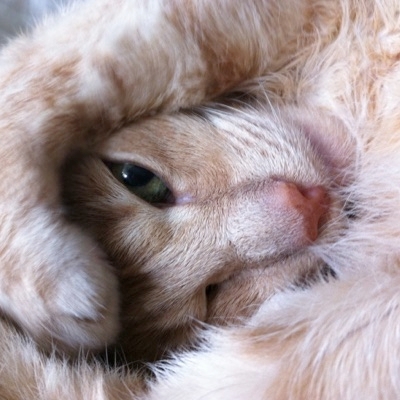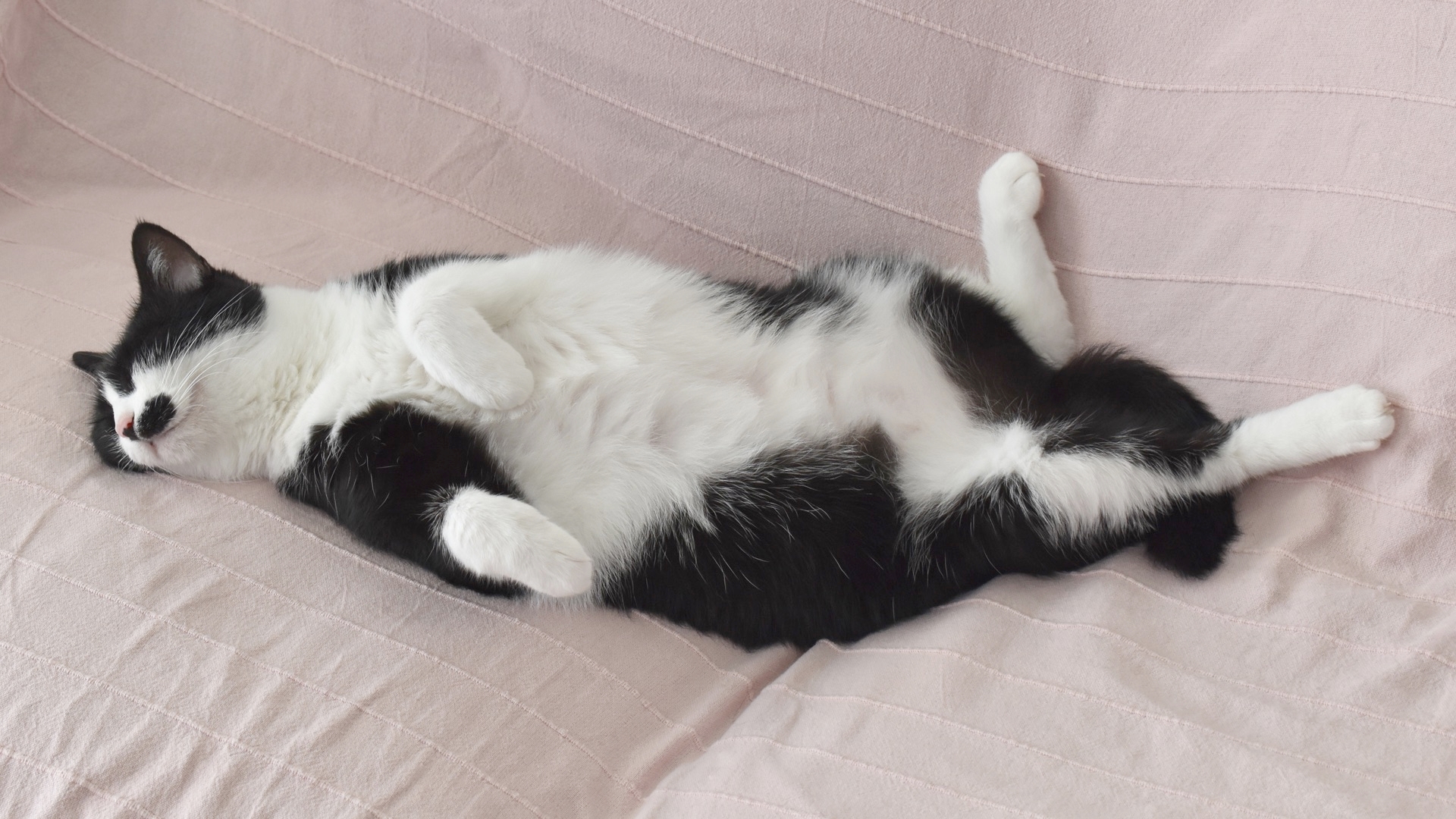Lethargic Cats:
Summary:
It is natural for cats to spend a lot of time sleeping. A cat will sleep an average of eighteen hours a day. It is natural for a cat to be lethargic after completing a meal. The modern domesticated cat is prone to lethargy primarily because the human caregiver overfeeds and under exercises her! Of course, there are other causes of cat lethargy.


It is natural for cats to spend a lot of time sleeping. A cat will sleep an average of eighteen hours a day. It is natural for a cat to be lethargic after completing a meal. The modern domesticated cat is prone to lethargy primarily because the human caregiver overfeeds and under exercises her! Of course, there are other causes of cat lethargy.
There are many diseases which can result in lethargy. Usually, the first symptom to look for is anemia. Check your cat's gums for a bright pink coloring. If the gums are quite pale and if your cat is also suddenly acting lethargically, see your veterinarian. Even if anemia is not apparent and your cat is suddenly lethargic, get her to a veterinarian.
The loss of a loved one, whether human or animal, can sometimes cause a cat to go into a depression. Time and lots of tender, loving care will usually get her back into activity. A change of diet to a high quality, well-balanced food with more calories will sometimes do the trick.
A past frightening experience could cause a cat to curl up and stay in a safe place each day. Patience, time, and sometimes another cat will get this cat going again.
Just plain boredom can be the cause of lethargy. Provide more playthings, more playtime with you, or another cat to get your cat up and moving again. Two cats are usually happier and more active than one!
The greatest cause of lethargy is too much weight. An overweight cat is susceptible to heart disease, circulation problems, and other medical concerns. Research suggests that a cat is twenty percent overweight faces a mortality rate fifty percent greater than normal. For example, a twelve pound cat whose normal weight is ten pounds is at risk. In addition, an overweight cat is susceptible to many more diseases than a healthy cat. A fat cat's food must be restricted! Do not give her treats or table scraps. Select a high quality food and follow the feeding suggestions on the package. (For a time, you may want to consider earplugs!) Be patient; the crying will be extinguished when she is not reinforced with a full food bowl. Combine weight loss with exercise! Sound familiar?


